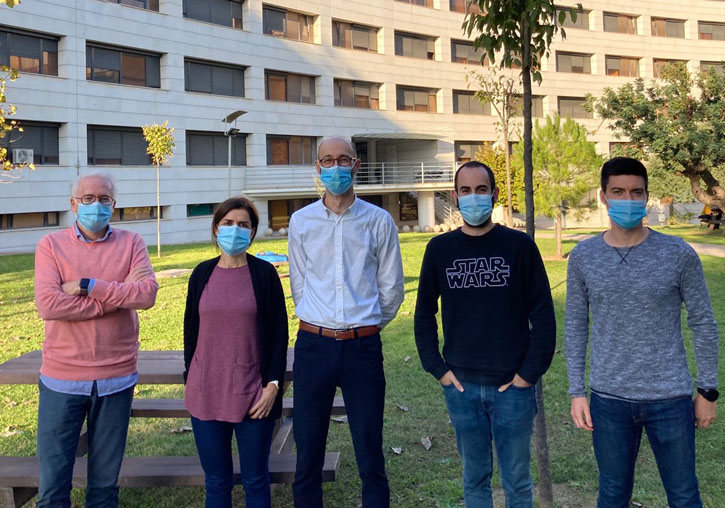
A research group from the Department of Biochemistry and Molecular Biology of the University of Valencia (UV), in coordination with the National Centre for Biotechnology (CNB) of the CSIC, has studied the role of interactions within the membrane of proteins of the viral families Herpesviridae and Poxviridae in the control of programmed cell death. The work, published in Nature Communications, could have implications for the development of treatments for viral infection, as well as the prevention of cancers associated with them.
The results of the finding, led by Dr. Luis Martínez, PhD in the Department of Biochemistry and Molecular Biology, would imply that interactions within the membrane between virus proteins and the host individual could be used as therapeutic targets for the treatment of some viral infections. An agent capable of blocking such interactions would not only reduce, or even inhibit, viral replication, but also slow down the possible development of cancer associated with such infections.
Cell apoptosis (programmed cell death) is an essential process in multicellular organisms, as it contributes to the balance between cell death, proliferation and differentiation, which is relevant for the development and proper functioning of living things. This makes it a highly regulated process involving many components, including the protein family known as Bcl2 (B-cell lymphoma 2).
In order to maximise their growth, viruses in the Herpesviridae and Poxviridae families have developed mechanisms to modulate cell death in host individuals. Therefore, these viruses have proteins structurally similar to Bcl2 proteins, known as viral Bcl2, which have a transmembrane domain that allows the protein to be inserted into the target membrane to deregulate cell apoptosis.
“In this work we show that viral Bcl2 proteins have a transmembrane domain (TMD) that allows them to be anchored to the mitochondrial membrane. In addition, we observed that these proteins are able to interact with each other and with other Bcl2 proteins of host individuals through this domain. Our results also indicate that these interactions are key to controlling cell death after an apoptotic stimulus such as a viral infection”, said Luis Martinez.
The research also involved Ismael Mingarro, Mª Jesús García, Gerard Duart and Brayan Grau, from the Department of Biochemistry and Molecular Biology and the BIOTECMED Institute of the UV, and Elisabet Díaz, from the CNB. The work has been funded by the Valencian Government and the Spanish Ministry of Economy and Competitiveness.
Article: García-Murria, M.J., Duart, G., Grau, B. et al. Viral Bcl2s’ transmembrane domain interact with host Bcl2 proteins to control cellular apoptosis. Nat Commun 11, 6056 (2020). https://doi.org/10.1038/s41467-020-19881-9












